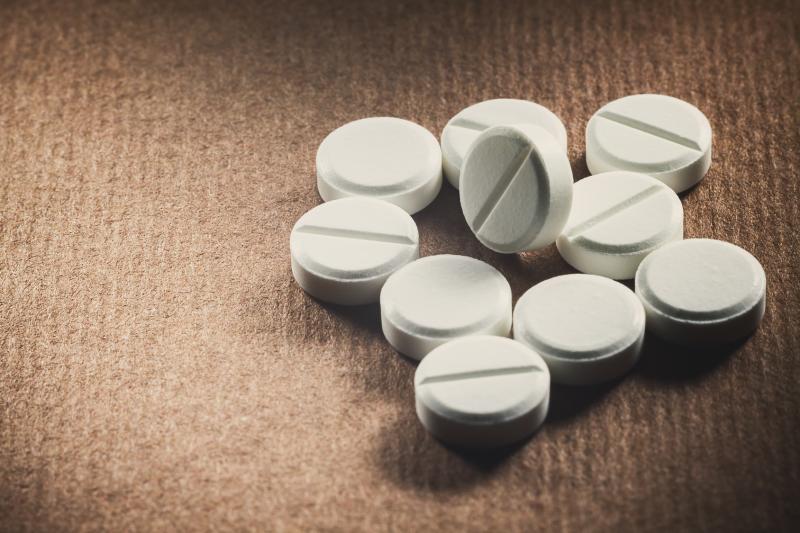
People with COVID-19 infection should avoid taking ibuprofen, according to the World Health Organization (WHO), which issued the advice after French officials raised the alarm about the potential of anti-inflammatory drugs to worsen the effects of the virus.
French Minister for Solidarity and Health Olivier Véran, who is also a neurologist, wrote in a tweet on 14 March that taking anti-inflammatory drugs, such as ibuprofen and cortisone, might be counterproductive, as they could be an “aggravating factor of the [COVID-19] infection. If you have a fever, take paracetamol.”
The blunt warning came in parallel with a recommendation released by the General Directorate of Health in France stating that nonsteroidal anti-inflammatory drugs (NSAIDs) have been reported to have serious adverse effects in suspected or confirmed COVID-19 patients. Hence, poorly tolerated fever or pain should be managed using paracetamol without exceeding the dose of 60 mg/kg/day. [https://dgs-urgent.sante.gouv.fr/dgsurgent/inter/detailsMessageBuilder.do?id=30500&cmd=visualiserMessage]
Véran’s warning was preceded by a letter published in The Lancet, wherein the authors posited that patients with type 2 diabetes and hypertension might be at increased risk of COVID-19 and that some agents might influence susceptibility to infection.
“Human pathogenic coronaviruses (severe acute respiratory syndrome coronavirus [SARS-CoV] and SARS-CoV-2) bind to their target cells through angiotensin-converting enzyme 2 (ACE2), which is expressed by epithelial cells of the lung, intestine, kidney and blood vessels,” the authors wrote. [Lancet Respir Med 2020;doi:10.1016/S2213-2600(20)30116-8]
Some drugs contributed to increased production of ACE2 receptors on the surfaces of cells, they pointed out. In principle, patients taking such drugs, including “thiazolidinediones and ibuprofen,” might be at much greater “risk of developing severe and fatal COVID-19.”
Experts weigh in on matter
The warnings have thrown the medical community off balance, what with COVID-19 being novel and little is known about the virus and how it responds to common medications.
Some experts suggested that Véran’s advice was consistent with evidence in literature, although the specific link to COVID-19 was lacking. In a statement, Prof Paul Little from the University of Southampton cited case-control studies reporting NSAIDs use to likely result in prolonged illness or complications of respiratory infections.
Prof Ian Jones, a virologist at the University of Reading, said, “The advice relates to ibuprofen’s anti-inflammatory properties, that is, it dampens down the immune system, which may slow the recovery process.”
“There is a good reason to avoid ibuprofen as it may exacerbate acute kidney injury brought on by any severe illness, including severe COVID-19. There isn't yet any widely accepted additional reason to avoid it for COVID-19,” added Rupert Beale, a group leader in Cell Biology of Infection at the UK's Francis Crick Institute.
On the other hand, the European Medicines Agency (EMA) released a statement, allaying concerns about NSAIDs. “There is currently no scientific evidence establishing a link between ibuprofen and worsening of COVID‑19. EMA is monitoring the situation closely and will review any new information that becomes available on this issue in the context of the pandemic.” [https://www.ema.europa.eu/en/news/ema-gives-advice-use-non-steroidal-anti-inflammatories-covid-19]
The agency encouraged patients and healthcare professionals to consider all available treatment options, including paracetamol and NSAIDs, when initiating treatment for fever or pain in COVID-19.
“Each medicine has its own benefits and risks which are reflected in its product information and which should be considered along with EU national treatment guidelines, most of which recommend paracetamol as a first treatment option for fever or pain,” the EMA stated.
Meanwhile, WHO backtracked on its advice against the use of ibuprofen. “Based on currently available information, WHO does not recommend against the use of [the drug]. We are consulting with physicians treating [COVID-19] patients and are not aware of reports of any negative effects, beyond the usual ones that limit its use in certain populations.” [https://twitter.com/WHO/status/1240409217997189128]
Other experts argued that there is no need to treat mild-to-moderate fever in COVID-19, as the increase in body’s temperature manifested by fever enables the immune system to more efficiently kill viruses and bacteria. [Alcohol 2008;42:237-247]
“Fever is not a disease,” said Jane Orient, executive director of the Association of American Physicians and Surgeons, in a press release. “Very high fevers (say 105 degrees) can cause brain damage, and children can have seizures. But don't pop Tylenol or ibuprofen at the first sign of fever.” [https://aapsonline.org/donts-and-dos-on-coronavirus/]